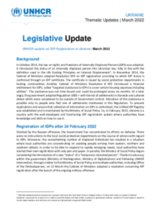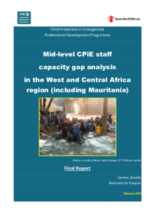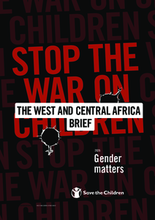Displaying 1 - 10 of 109
This legislative update by the UN Refugee Agency outlines amendments made by the Ukrainian government to Resolution 509 on Internally Displaced Persons (IDP) registration in light of the Russian offensive that began 24 February 2022. These amendments are aimed at ensuring that IDP registration is available to anyone who was forced to flee their homes due to the large-scale hostilities.
El documento “Cierre de casos de niños, niñas y adolescentes reintegrados a un entorno familiar y comunitario en área de demostración” es un documento dirigido a profesionales de trabajo social, psicología y pedagogía que trabajan directamente en la atención a NNA que están en proceso de reintegración a un entorno familiar y comunitario, el documento contempla el proceso realizado para el cierre de casos abordado desde una metodología de gestión de casos, dentro del documento también se narra la experiencia que se tuvo en Zacapa, Guatemala y se reflexiona sobre la importancia de la reintegración a través de un proceso planificado de gestión de casos y de acompañamiento cercano a las familias y cuidadores.
The report is aimed at professionals in social work, psychology and pedagogy who work directly with children who are in the process of reintegration into a family and community environment. The document contemplates the process carried out for the closure of cases approached from a case management methodology. The report captures the experience that was had in Zacapa, Guatemala, and it reflects on the importance of reintegration through a planned process of case management and close accompaniment to families and caregivers.
This tool, part of the Inter-Agency Toolkit: Preventing and Responding to Child Labour in Humanitarian Action, offers guidance on age verification, including when children have no birth certificates or other documentation, or have lost these during a crisis.
This Country Care Review includes the care-related concluding observations adopted by the Committee on the Rights of the Child and the Committee on the Rights of Persons with Disabilities, as well as other care-related concluding observations, ratification dates, and links to the Universal Periodic Review and Hague Intercountry Adoption Country Profile.
The child protection in emergencies (CPiE) capacity gaps analysis (CGA) in the West and Central Africa (plus Mauritania) region, targeting CPiE practitioners with 3-5 years of professional experience, aimed to collect and provide information on (1) identified key CPiE capacity gaps and (2) existing and available capacity building initiatives.
This article explores age assessment methods used in estimating legal age or minor status of migrants and the need to minimize false positives with the aim of avoiding mistaken classification of a minor as of legal age.
This brief - a supplement to the Stop the War on Children 2020: Gender matters report - highlights the situation of children in conflict zones in West and Central Africa with a focus on gender.
This report delves into the differences between boys’ and girls’ experiences through a gendered analysis of the six grave violations of children in conflict, including recruitment of children by armed forces and child abduction. The report makes reference to the vulnerabilities faced by girl heads of household or unaccompanied and separated girls on the move and calls for interventions such as family tracing and reunification, the provision of alternative care for unaccompanied and separated children, and the release and reintegration of children associated with armed forces and armed groups.
This country care review includes the Concluding Observations for the Committee on the Rights of the Child and the Committee on the Rights of Persons with Disabilities adopted as part of their examinations of Kuwait’s periodic reports.









